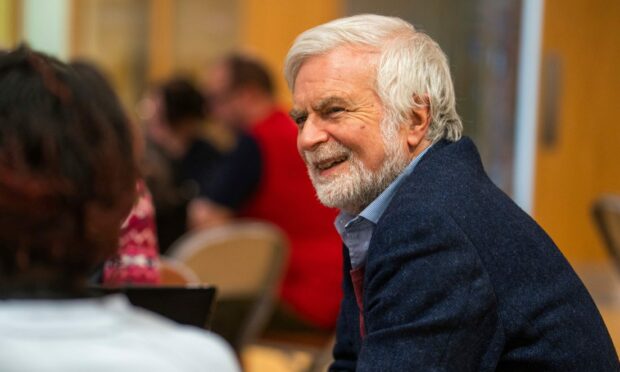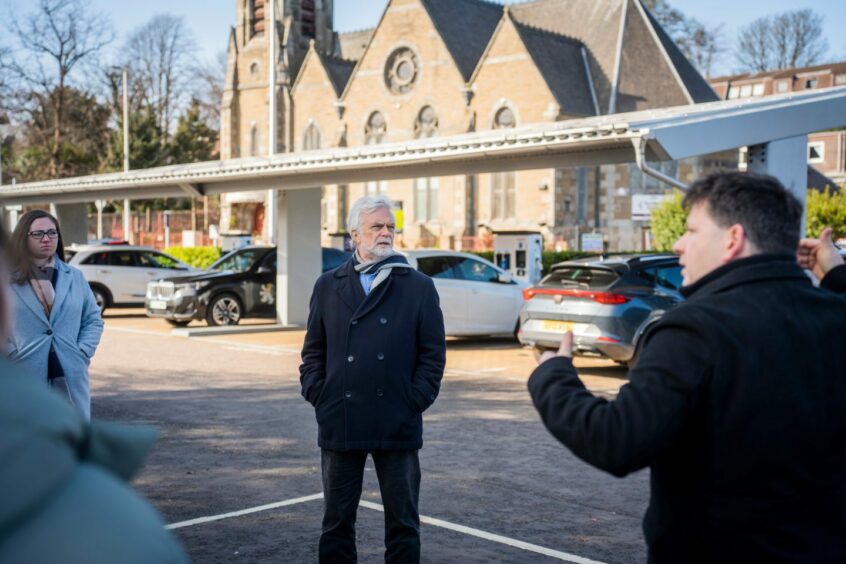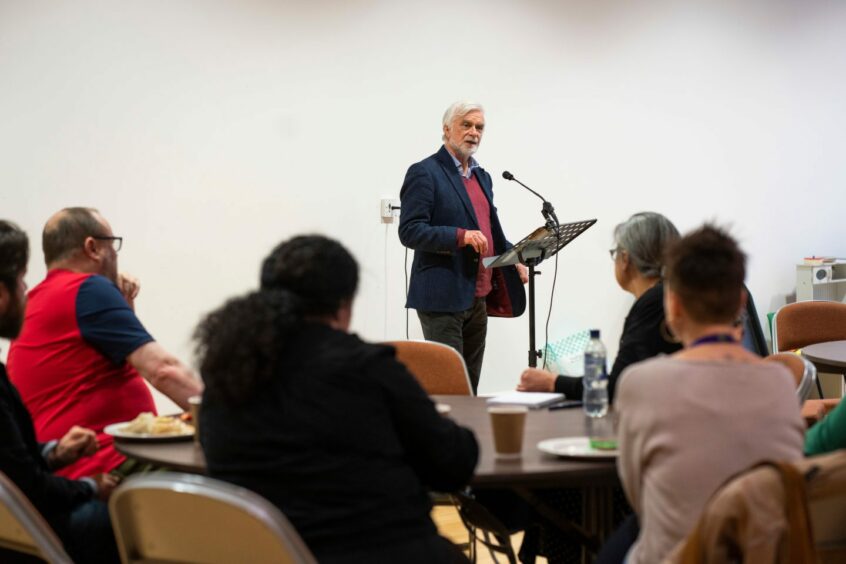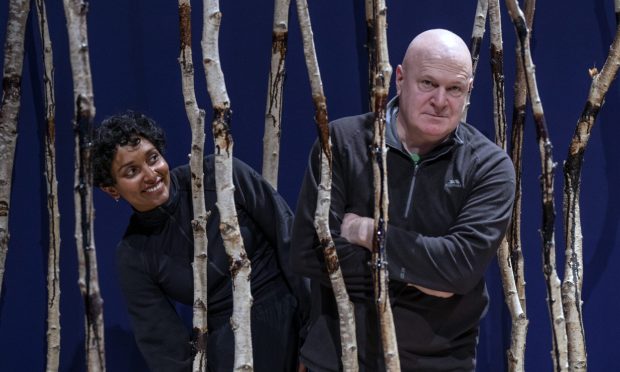Former Grove Academy pupil Jim Skea had one question when he learned of his new role as chair UN’s Intergovernmental Panel on Climate Change (IPPC).
“Is this real?”
It was.
Now the Dundee-born professor is responsible for guiding world leaders on the latest science on climate change.
But Professor Skea hasn’t forgotten his roots, offering his opinion on local environmental issues, such as the wash out summer and the Dundee Low Emission Zone (LEZ).
When asked how he attained his new impressive role, Jim, who has been involved in climate change research since the 1980s said: “I looked at the job and thought, I could do that.
“I really enjoy working on the boundary between science and policy-making.
“This really is the ultimate job. It’s the end of the line and I’m really enthusiastic about it.”
Jim is also a professor at Imperial College London, specialising in natural sciences and environmental policy.
He notably co-led IPCC special reports on “Global Warming of 1.5 °C” and “Climate Change and Land”, among others and founded the UK’s Committee on Climate Change.
Jim Skea on Dundee’s LEZ
As a Dundee-born climate expert, Jim keeps an eye on local issues.
He said when it comes to schemes like the Dundee LEZ, making the right travel choices is “really important”.
Although Jim recommends “standing together” when tackling climate change, he acknowledges there are environmental schemes which can cause friction.
For example, what he called the Dundee LEZ “stooshie”.
The zone, which aims to improve air quality in the city, has been subject to criticism, including from some readers.
He said: “That’s a good example of why you need to be sensitive to the social and economic consequences of the change, to make sure that disadvantaged groups are not so strongly affected by things.
“But what all the IPCC reports have said is that travel choices are a really important part of climate action.
“So more active travel, more use of public transport, obviously the move to electric vehicles, are all a big part of it.”
Jim grew up in the city centre, and attended Grove Academy in Broughty Ferry.
He is “optimistic” about stepping into this role.
“I would describe myself as genetically optimistic.
“The IPCC has made a difference in the past, and I do think it can make a difference in the future.”
Climate change has played a hand in the devastating wild fires across Europe.
Perthshire Conservative Murdo Fraser, MSP for Mid Scotland and Fife, faced criticism recently for tweeting “can we have some of that Mediterranean heatwave here please?”
Jim responded: “If there were a Mediterranean heat wave in Scotland, it would certainly stimulate action, but I don’t think I would wish it on anybody.”
What’s next in Dundee IPCC chair’s fight against climate change?
As new chair of the IPCC, Jim has an important job to do.
“What IPCC needs to focus on going forward is climate action and what can actually be done,” he said.
“We’ve made the point now, the human influence on the climate is unequivocal.
“The question is what we do about it.”
Unless we stand together, we’re not going to make progress on climate change.”
Jim Skea, new chair of the Intergovernmental Panel on Climate Change
While Jim could not comment on the UK politics surrounding climate change mitigation measures, such as the recent controversy surrounding banning the sale of petrol and diesel cars by 2030, he said: “You cannot really make movement on climate action, unless there’s a broader social consensus that that’s the direction you need to go.
“Unless we stand together, we’re not going to make progress on climate change.”
Climate change expert 1.5C warning
The IPCC have produced a series of reports about climate change causes, impacts and potential responses.
Their 2018 report on Global Warming of 1.5C was vital to understanding of climate change impacts and encouraged international action.
Jim said: “When we produced the special report on global warming of 1.5 degrees five years ago, that was the report that put the concept of net zero emissions on the map.”
One year later, Scotland announced a global climate emergency, and has set a target of net zero emissions by 2045.
Despite changes made around the world to reduce greenhouse gas emissions, we are not there yet.
The success of measures to limit global warming to 1.5C degrees is on a “knife-edge”, says Jim.
“We have been saying for five years now that we need deep and immediate emission cuts,” he said.
“If we carry on the way we are emitting globally by 2030, it may well be beyond reach.
“Regardless of what happens, we will more likely than not reach 1.5 degrees warming around the early 2030s, even if we take ambitious climate action.
“But we if we take that ambitious climate action, we will just shave over the top of 1.5.
“It’s likely that we will reach it, but it’s within our choice to bring it back down to 1.5 again in the future.”
Dundee IPCC chair likes to ‘stay positive’ on climate change
But despite this worrying projection, Jim has a remarkably positive attitude.
He said: “I first encountered climate change in 1987.
“Having lived with climate change for over thirty years now, if you’re constantly exposed to the same risk, you get blasé about it.”
For Jim, it is all about focusing on the solutions.
“I like to stay focused on the positive and the things we can actually do to address climate change, rather than getting stressed and paralysed into inaction by the fear of what’s happening.
“I honestly don’t wake up in the morning with any great sense of existential angst about climate change.
“It’s more: what do we need to do?”












